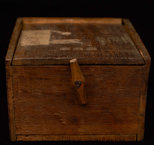Donors and depositors: FAQs

Advice on how to look after your archives and deposit them with the Borthwick Institute can be found below.
If you have any other questions please get in touch with us. We are happy to help.
If the Borthwick doesn't accept my archive, are there other repositories that might take it?
The Borthwick Institute forms part of a local and national network of archive collecting.
The ARCHON directory includes contact details for repositories in the UK and beyond.
The directory is searchable by region if a local repository is required.
Information about Approved Places of Deposit is maintained by the National Archives and depositors may wish to consult this list if they require assurance that a particular repository is looking after their archives in line with current national standards.
How do I get my archive to the Borthwick?
Once agreement has been reached regarding the transfer of your archive to the Borthwick, we will arrange a suitable collection or delivery time with you and advise you how best to prepare your archive for transfer.
Where should I store my archives?
Storage environment can have a big influence on archives.
If you are looking after archives for any length of time consider where it will be best to keep them.
Good storage should be clean and secure.
Try to avoid locations that may be damp (such as basements) or too dry.
It is also important to avoid areas that may suffer from either extremes of temperature or great temperature fluctuations, such as in attics or next to radiators.
In what format would you prefer to receive my archive?
Our preference is to receive your archive in the format in which it was created.
If a document or photograph was originally created in a physical form we would prefer to receive the original (not a scanned copy).
If a document or photograph was originally created in digital form, we would prefer to receive the original or 'born-digital' version (not a print out).
I would like my archive to be preserved within an archival repository but would like to continue to have access to the material myself. What should I do?
Once your archive is housed within the Borthwick Institute, you would be welcome to come and access it within normal searchroom opening times.
We can arrange for special access if required.
If you would like to make copies of the material to keep for yourself you are able to do so.
We are happy to advise on current digitisation standards if you wish to create digital copies and we also offer a digitisation service. Do feel free to contact us to discuss this.
I have digital material to deposit - how do I transfer this to you?
There are several methods of sending us digital material for the archive.
The following page contains more information:
We recommend that you keep your own copy of the data and do not delete this until we have confirmed with you that we have received the media and are happy to take over custody of it.
I am creating digital material that I would like to archive at a later date. How should I look after my data?
Considering the future of your digital files at the point of creation is the single most important thing you can do to ensure its longevity.
Embracing good data management practices in your day-to-day work, such as sensible file naming, use of logical directory structures and regular back-ups will not only ensure that you can locate your files when you need them, but will also help archivists and researchers of the future to make sense of your digital legacy.
More information and advice on managing your digital material:
I have inherited someone's digital legacy and think it should go to an archive. What should I do with it?
If you feel the digital material fits with our , contact us to discuss making a deposit or donation.
In order to protect the integrity of the digital files try not to manipulate, rearrange, extract or copy files from their original source.
The simple act of opening a file within an application could lead to a change in the date and time stamp of that file which could make it more difficult to prove its authenticity.
Extensive advice including checklists for donors and dealers can be found in the following report:
What other information will you need from me about my digital archive?
Once we accept digital material for archive we may need to ask you for some background information about the computer and software that you used to create the files.
This information will help us to read and understand your files and find an appropriate way to preserve them for the long term.

